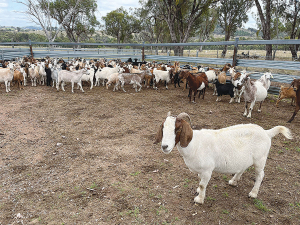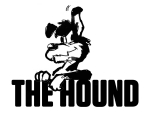The Australian goatmeat industry set a new record for production and exports last year.
For the calendar year, exports smashed the previous Australian record (set in 2014) of 35,778 tonnes shipped weight (swt), hitting 51,488 tonnes swt.
Meat and Livestock Australia market insights analyst Emiliano Diaz says that globally Australia represents a fraction of the goatmeat produced.
“However, with the majority of Australia’s production exported, our standing as the number one goatmeat exporter in the world is cemented,” says Diaz.
Underpinning the record export volumes achieved in 2024 was a mammoth increase in production, which, from January to September (the most recent data available), accounted for 2.55 million goats processed.
This marked a 23% increase in slaughter compared to the same period in 2023. The first nine months of 2024 alone were enough to position the year at the highest processed volume, based on a 4% increase in the total number of animals processed for the full 2023 year, which was the previous record.
Diaz says this remarkable growth can be attributed to favourable weather conditions in key goat-producing regions and the reopening and expansion of goat processing plants. As a result, 2024 averaged an impressive weekly processing rate of more than 58,000 head with peaks reaching over 70,000 head. This was a significant jump from the previous high weekly average in 2023 of almost 40,000 head.
Diaz says production increase has been witnessed across the board, with all key production states increasing slaughter year-on-year. According to the latest slaughter data (January to September), Victoria remains the largest processing state, accounting for 44% of all Australian goatmeat, followed by Queensland at 27%, and then NSW at 26%. Strong growth was seen in NSW, with an increase in processed volume of more than double.
Increased production capacity and strong demand from key international markets also created the perfect conditions for a bumper year. Between January and December last year, 51,488 tonnes swt of goatmeat were exported globally. This was more than a 52% increase on 2023 and 44% more than the previous export record-breaking calendar year, 2014.
The US remains Australia’s largest goatmeat export market, comprising 54% of all exports at 27,559 tonnes swt in 2024. This was the highest shipped volume to a single market on record. Korea ranked second, with a five-year continued growth demand seen with a new all-time high of 8,639 tonnes swt. Mainland China continues to be in the top three with a notable 5,161 tonnes swt, demonstrating a sustained demand for Australian goatmeat. The fourth and fifth biggest markets were Canada with 2,632 tonnes swt and Taiwan with 2,008 tonnes swt.
The majority of exported goatmeat continues to be frozen, either as a whole carcase or a six-way split, with a mix of skin-on and skin-off depending on the market.
Diaz says the increased processing capacity and plant specialisation set a ‘new normal’ with higher production and export volumes. There continues to be a strong appetite for Australian goat meat from international markets, demonstrating the ability to absorb the increased supply.
“If prices and the global trade environment remain stable, the Australian industry is well-placed to leverage the quality of Australian goatmeat to meet customer and consumer needs in the future,” says Diaz.











